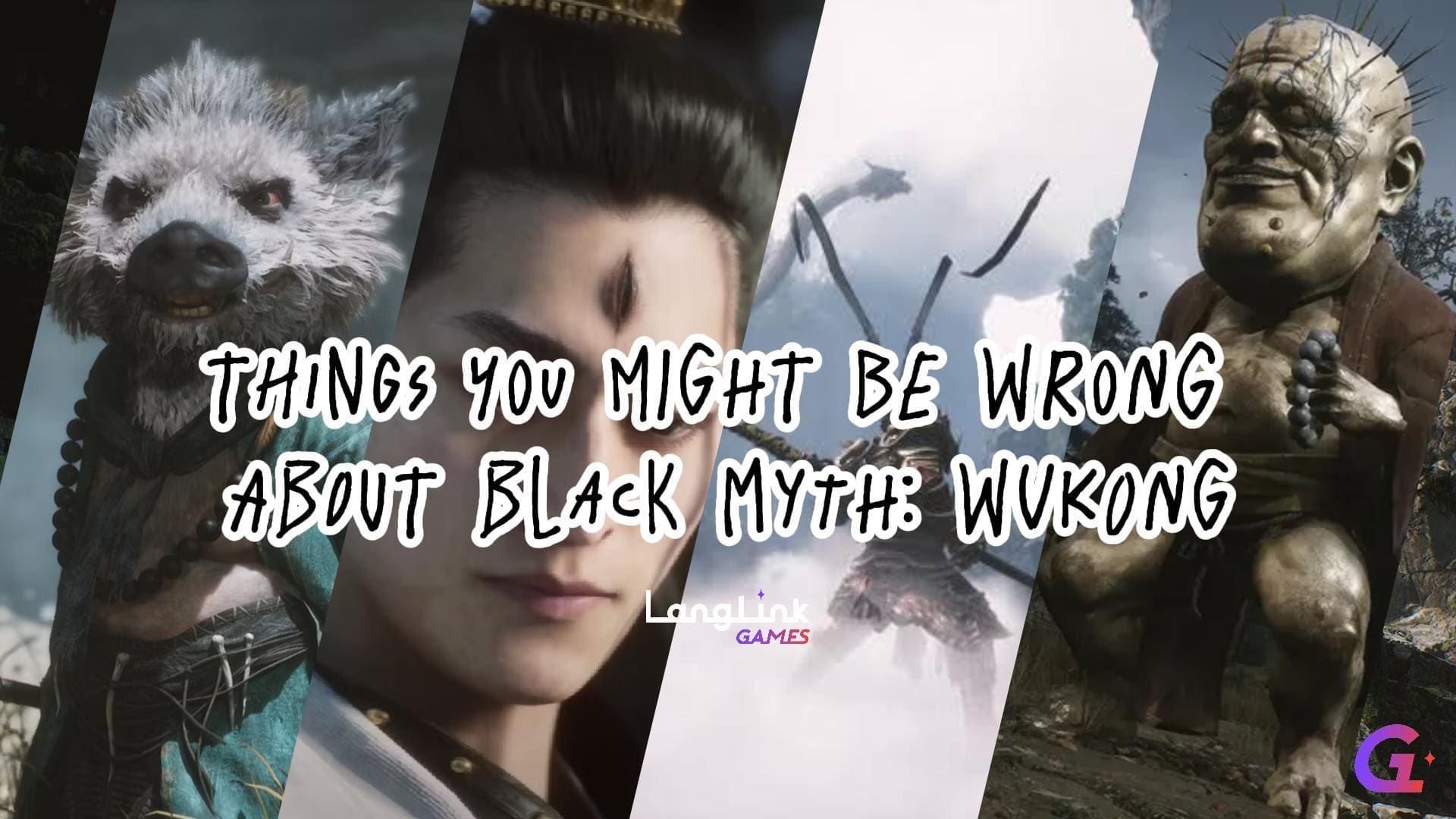[New Blog Release]Unveiling Hidden Lore and Story in Black Myth: Wukong – Key Moments You Might Have
[New Blog Release]Unveiling Hidden Lore and Story in Black Myth: Wukong – Key Moments You Might Have
At first glance, Black Myth: Wukong captivates with its breathtaking visuals and thrilling combat. But as the dust settles after each chapter, the deeper mysteries of its narrative begin to unfurl. The game isn’t just a journey through a mythical land—it’s a modern retelling of one of China’s greatest literary epics, Journey to the West (西游记). But with cryptic cutscenes and lore-rich characters, it’s easy to miss the nuances tucked beneath the surface.
Fear not! We’re here to help you dive into the cultural treasures woven into the fabric of Black Myth: Wukong, revealing details that might otherwise go unnoticed. Here are four key moments you might have missed—or misjudged entirely.
1. Bajie: The Pig With a Past, Not a Pet!
Who would’ve thought that a clumsy pig could stir so much confusion? When Black Myth: Wukong was first teased, many players and reviewers mistook Zhu Bajie—the bumbling, pig-like companion—for a simple “pet” system. Adorable, sure, but a pet? Hardly.
In fact, Zhu Bajie is a figure of rich complexity, far from just comic relief. Once a heavenly marshal, Zhu Bajie’s charm and good looks got him into trouble, leading to his exile from the celestial realm. Now cursed with the form of a pig, he accompanies Tang Sanzang in the Journey to the West, helping his master on their pilgrimage. In the game, when Bajie gazes into a mirror, the reflection reveals not the rotund figure he now bears, but the heroic, handsome form he once embodied—a poignant reminder that appearances can deceive, and that every character carries the weight of their past.
2. The Mysterious Deity With the Dog: Guess Again, We Already Know!
Western audiences were in for a surprise when a certain celestial figure appeared alongside a powerful dog early in the game’s prologue. “Who could this be?” many speculated, particularly when some outlets coyly mentioned that the final boss would have a dog by their side. To those familiar with Chinese mythology, however, this reveal wasn’t a mystery—it was a well-loved figure.
Meet Erlang Shen, one of the most recognizable deities in Chinese legend, and his trusty celestial hound. Erlang Shen has been a key figure in myths like The Investiture of the Gods and The Lotus Lantern, where his dog plays a pivotal role, even devouring the moon during a lunar eclipse according to ancient belief. So when Chinese players heard whispers about a deity and a dog in Black Myth: Wukong, their reaction was more amused than surprised. “We know exactly who you’re talking about,” they chuckled.
3. Sun Wukong: The Path to Power Isn’t Always Born, It’s Earned
The main hero, Sun Wukong, might seem like a natural-born powerhouse, but the truth is more nuanced. His strength wasn’t an inherent gift; it was the result of painstaking training and determination. Throughout Journey to the West, Sun Wukong was a pupil—learning, failing, and rising again.
His incredible ability to transform into 72 different forms? That wasn’t bestowed on him. It was taught. His famous somersault cloud that lets him leap across the world? Another hard-earned prize. Even the legendary Ruyi Jingu Bang, the golden staff that bends to his will, was a trophy won through chaos and cleverness in the East Sea. He’s not just a mischievous monkey-turned-hero—he’s the embodiment of growth through adventure, a message the game subtly emphasizes as you progress.
4. The Tragic Tale of Elder Jinchi: A Lesson in Greed
As you move through Black Myth: Wukong, one particularly thought-provoking cutscene follows the completion of the first chapter. Players are introduced to a toad, and things get… strange. But as with most elements in this game, the toad isn’t just a random creature—it’s a symbol. In Chinese folklore, toads are seen as bringers of wealth, capable of producing thousands of eggs at once.
In this scene, we meet a young monk named Jinchi, who catches a toad and begins to accept lavish offerings from a black bear. This raises a red flag: monks, after all, are supposed to renounce worldly desires, right? The story hints at a deeper cultural context. In ancient China, monasteries were more than spiritual sanctuaries; they were tax-free havens, offering stability in exchange for a significant financial contribution. Jinchi’s acceptance of wealth signals the corruption that has seeped into his soul. The black bear, too, symbolizes greed, its wealth stolen from the dead. But it refrains from killing Jinchi, seeking a spiritual path of its own.
As the story unfolds, Jinchi’s desire for wealth becomes insatiable. He’s drawn to the kasaya—a monk’s sacred robe—embroidered with gold and precious gems. In ancient tradition, only monks granted imperial favor could wear such rich colors, but Jinchi’s desire blinds him to this. His greed becomes personified by the black bear looming over him, its shadow growing as Jinchi rises in status.
In the end, Jinchi succumbs to temptation. His greed, like an unstoppable wildfire, consumes everything, turning the temple into a sea of flames. The fire represents not only the destruction of the temple but the internal devastation greed brings when left unchecked.
In every chapter-ending cutscene, Black Myth: Wukong crafts layers of meaning that extend beyond what’s seen at first glance. From the rich lore surrounding characters like Zhu Bajie to the symbolic representation of greed through Jinchi, the game offers more than just action—it offers a glimpse into the timeless truths found in Chinese mythology.
So if you’ve missed these intricate details while battling Yaoguai and deities, don’t worry. Every journey is a learning curve—just like Sun Wukong’s. Leave a comment if you want us to dive even deeper into the lore, and don’t forget to subscribe for more insights as we continue exploring the world of Black Myth: Wukong!
Pictures from Black-Myth Wukong Wiki:
https://blackmythwukong.fandom.com/wiki/Black_Myth:_Wukong_Wiki
About LangLink’s Game Localization Solutions
A successful game localization requires advanced gaming and language skills. LangLink’s game localization team includes hardcore gamers, native linguists, and professional game translators. We not just localize games, but also play them. Learn more about services.


